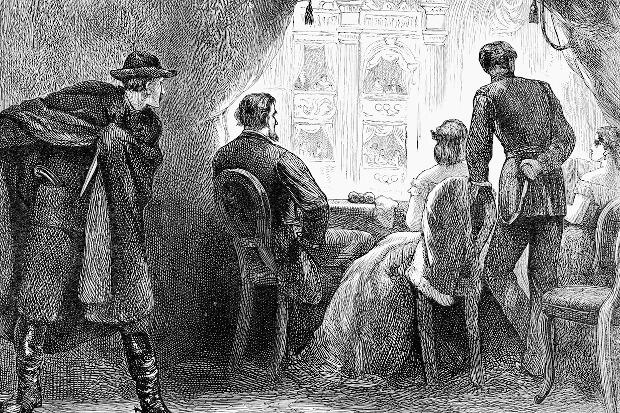
Feb. 27, 2018
Study: Social conflict influences likelihood of political assassination
Share this story
A new study led by a Virginia Commonwealth University School of Business professor finds that increased social conflict increases the likelihood of political assassination.
“Assassination of Political Leaders: The Role of Social Conflict,” led by Andra Serban, assistant professor in the Department of Management, was published in the latest issue of The Leadership Quarterly. The research shows that environmental constraints and traditional culture can predict leader assassination through social conflict.
“Political assassination is a fascinating, but under-researched, topic in the leadership realm, with large-scale social, political and economic consequences,” Serban said.
“Assassination of Political Leaders” studied such historic leaders as Muammar Gaddafi of Libya, Nikolai Bobrikov of Finland, Michael Collins of Ireland, Faisal II of Iraq, William Tolbert of Liberia and Abraham Lincoln — all assassinated in a context of high social conflict. The study uses historiometric methods and large-scale archival data to examine whether the context in which a leader exercises power is associated with his or her assassination. The researchers based their study on long-standing research that suggests frustrating experiences increase the likelihood of all types of aggression.
“The findings … suggest that knowing something about a political leader’s style and the social conflict in his or her country can suggest whether that leader will be assassinated or be the target of assassination attempts,” Serban said.
Empirical studies aimed at identifying antecedents of leader assassination, involving multiple leaders through several historical periods, are exceptionally rare, the authors note. By examining the physical and social circumstances in which aggression occurs, the researchers explored why and when individuals engage in extreme aggression against leaders, in an attempt to better understand what causes political assassination.
The study uses multisource data to test the relationships between several country-level contextual factors, environmental constraints, traditional culture, religion, level of democracy, civil liberties and rule of law, political corruption and social conflict and political leader assassination.
Control variables comprised region of the world, leader gender, homicide rates and freedom from political killings, level of socio-economic development, climate, proportion of arable land and permanent crops, and time period.
This is the first study in the field to explore contextual factors, including social conflict, as antecedents of political leader assassination. It is also the first to employ both subjective (coded historiometric) and objective (archival) measures and data.
“The key implications involve the things to pay attention to in order to protect political leaders’ lives — if this is desirable” — such as level of democracy, political corruption, traditional culture and environmental constraints, Serban said, “and lessen the impact of assassinations on the social, political and economic situations in leaders’ countries.”
Subscribe to VCU News
Subscribe to VCU News at newsletter.vcu.edu and receive a selection of stories, videos, photos, news clips and event listings in your inbox.






